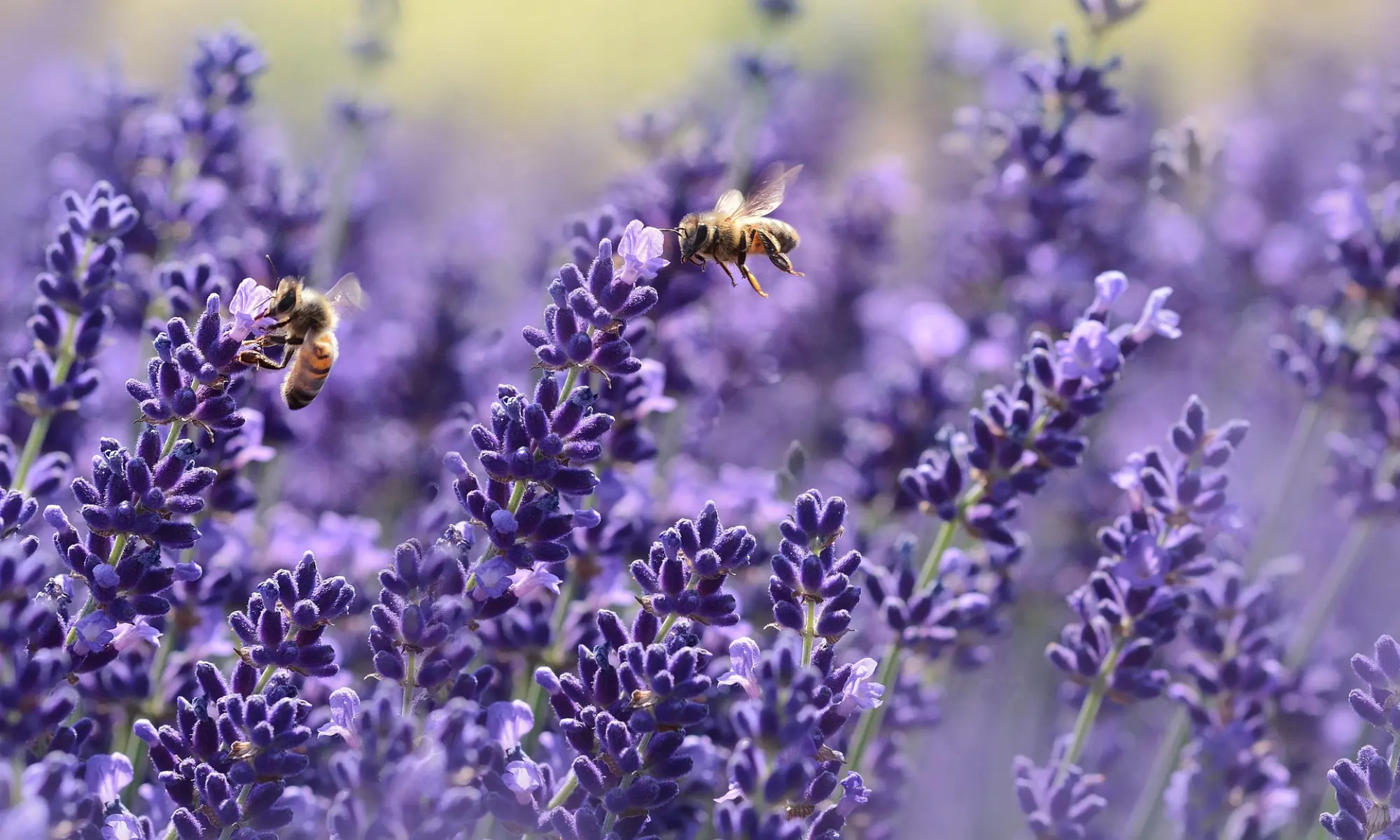The Magic of Lavender
The scent of fresh lavender can transport us to a place of utter serenity and refreshing calm. For centuries, many a culture have taken the opportunity to use this herb of tranquility to invite soothing, peaceful energies and usher in a cleansing air.
Lavender’s power, like its penetrating and piercing periwinkle color, reminds us of the freshness and peacefulness of the dawn just before the sunrise. The flower’s magic is readily apparent — it exudes a serene, cleansing energy.
The heady aroma that Lavender releases seems to awaken our minds while calming them simultaneously. Its beautifully ethereal color reminds us how to love and feel passion for the reverberating magical world around us.
There are many wonderful ways to enjoy the magic of lavender. Whether it be a nice, relaxing afternoon cup of lavender tea or a refreshing and aromatic cleansing of the home with a lavender smudge, you would be remiss not to have lavender as a staple in your magical home.
Lavender Magical Correspondences
- Botanical Name: Lavendula
- Folk Names: Elf Leaf, Nard, Nardus, Spike
- Gender: Masculine
- Planet: Mercury
- Element: Air
- Magical Attributes: Love, Protection, Sleep, Chastity, Longevity, Purification, Happiness, Peace, Divination, Psychic Ability, Spirit Communication, Meditation, Clairvoyance
16 Magical Ways to Use Lavender
- Lavender can be used to create incense that can assist with restful sleep and discourage negative thoughts and depression.
- Add lavender to baths and sachets for purification as well as healing.
- The scent of lavender can help bring peace and calm, and can also promote longevity. Keep lavender in the home to create a peaceful atmosphere as well as promote good health and happiness.
- Use lavender in pillows to ward off nightmares.
- Place lavender under your pillow and make a wish before you fall asleep. If you dream of anything relating to that wish, signs are that it will come true.
- Lavender can repel insects, so keep pouches of dried lavender in your closet to fend off moths.
- As Lavender is associated with air, it can be used to strengthen mental and psychic powers and it can also promote clarity of thought and generate visions.
- Use Lavender in meditations to help relax and open the mind.
- Lavender can be used to communicate with spirits, send messages, and carrying it can help to see ghosts.
- Lavender is associated with love and fertility and can be used in attraction, love, and beauty spells.
- Wear Lavender as a perfume or place dried lavender in clothes drawers to allow the scent to attract love.
- Rub Lavender on a piece of paper before writing a love note.
- When worn, Lavender can protect against an abusive spouse.
- Lavender is often thrown on bonfires during Midsummer as an offering to the gods.
- Lavender can be burned as a calm and relaxing, house-cleansing smudge.
- Use Lavender along with Amethyst stone to heighten psychic awareness and clairvoyant energies.
The Healing Power of Lavender*
- Lavender is actually full of antioxidants. It contains glutathione and catalase, which are among the body’s most powerful antioxidants.
- Lavender can be used to treat neurological disorders such as anxiety and depression, as well as lessen migraines and reduce stress.
- Diffuse lavender in the home or burn lavender-scented candles to help alleviate symptoms of postpartum depression.
- Diffusing lavender in the bedroom before bedtime, or rubbing a small amount of lavender oil behind the ears has been shown to lessen the effects of post-traumatic stress disorder.
- Lavender oil is a natural remedy for Alzheimer’s disease. Studies have shown it has the ability to repair cognitive functions and has healing potential for stroke victims.
- The antimicrobial compounds in lavender make it an effective remedy for burns, cuts, and scrapes as it can speed up the healing process.
- Lavender oil is a surprising natural remedy for hair loss when combined with other essential oils such as thyme and rosemary.
- For a powerful headache and migraine remedy, combine a couple of drops of lavender oil with equal parts peppermint oil and massage it into the back of the neck and temple.
- Lavender is a natural sedative and can be diffused in the bedroom to assist in getting a good night’s sleep.
- The scent of lavender can be used as a remedy for motion sickness and nausea.
- Lavender oil is a natural mosquito repellent.
Interesting Facts About Lavender
- Lavender was generously used in Egyptian mummification rituals, and when King Tutankhamen’s tomb was opened in 1923, the scent of lavender still lingered after 3,000 years.
- Lavender’s name is believed to have come from one of two sources: the Latin word lavare, which means “to wash” or the Latin livere, which means “blueish.”
- During Roman times, lavender cost 100 denarii per pound, which equated to buying about 50 haircuts or a full month’s wage.
- Common or English lavender is the most common form of lavender and is not actually native to England at all, but comes from the Mediterranean.
- Clothing moths do not like the scent of lavender, and as such dried lavender flowers are often put in clothes drawers to repel them.
- Lavender is mentioned in the Bible, however, it is referred to by its Greek name, spikenard.
- In Ancient Egyptian cosmetics, lavender was mixed with beeswax, placed under a wig, and allowed to melt to release its aroma.
- Lavender was the main ingredient in posies during the Black Plague, as it was used to cover the stench of decay and rot.
- Lavender was closely associated with clothes-washing, and as a result, English washerwomen were often referred to as lavenders.
- In the 1600s, Queen Elizabeth was known to be fond of lavender jelly and promoted its ability to calm nerves.
*FDA Disclaimer
The contents of this website are for informational purposes only and do not render medical or psychological advice, opinion, diagnosis, or treatment. The information provided through this website should not be used for diagnosing or treating a health problem or disease. It is not a substitute for professional care. If you have or suspect you may have a medical or psychological problem, you should consult your appropriate health care provider. Never disregard professional medical advice or delay in seeking it because of something you have read on this website. Links on this website are provided only as an informational resource, and it should not be implied that we recommend, endorse or approve of any of the content at the linked sites, nor are we responsible for their availability, accuracy, or content.



5 Replies to “The Scent of Tranquility: Lavender Spiritual Meaning and Magic”
Comments are closed.